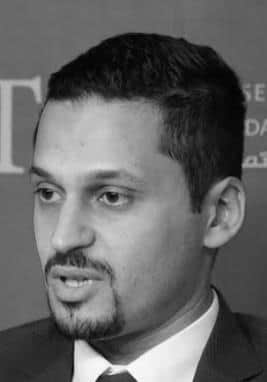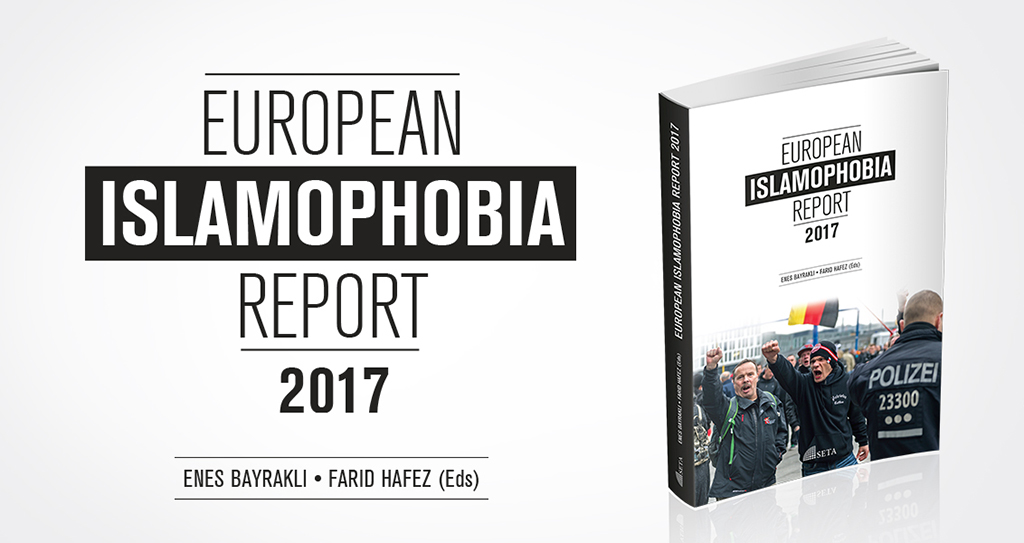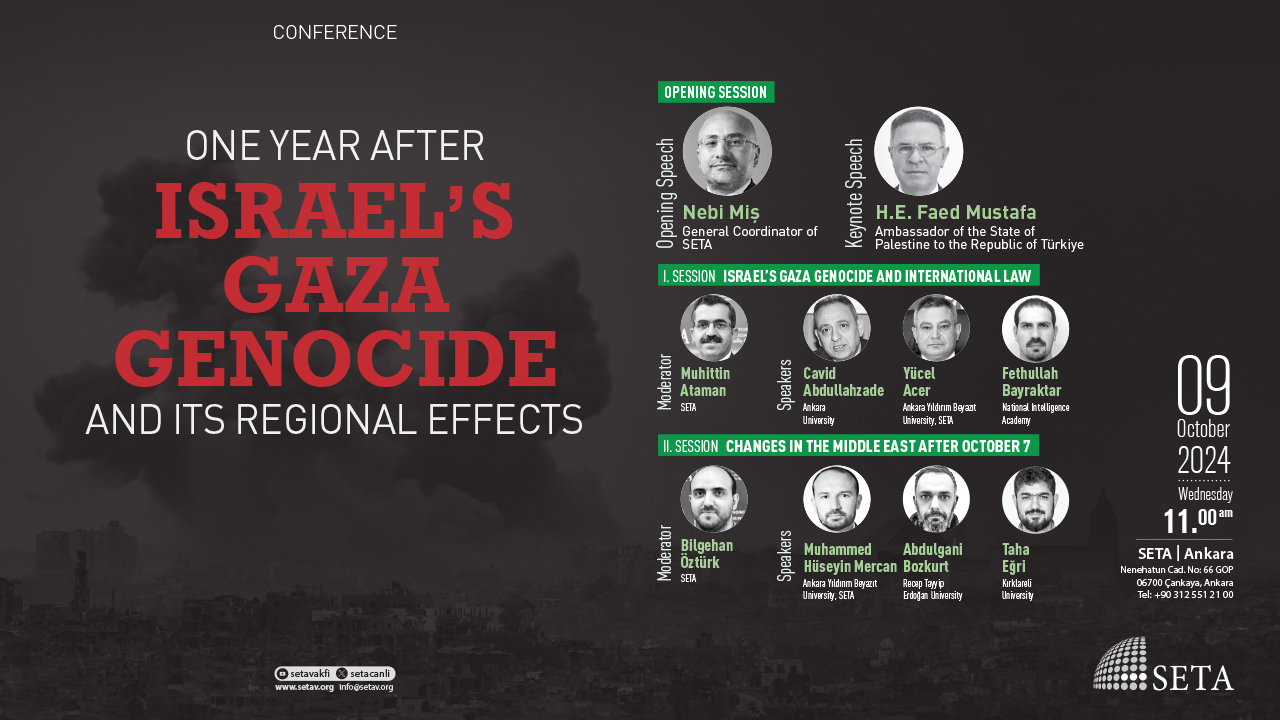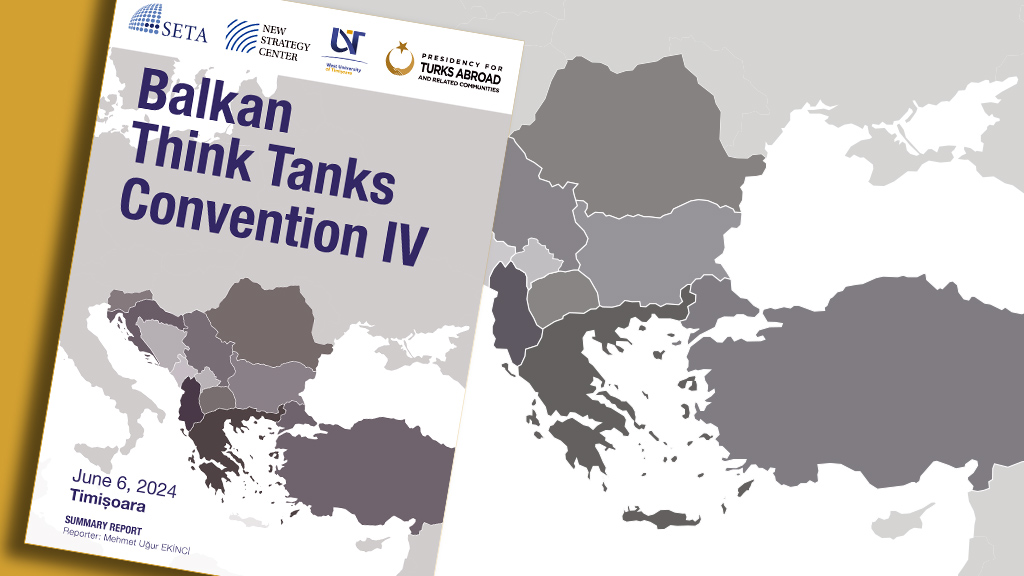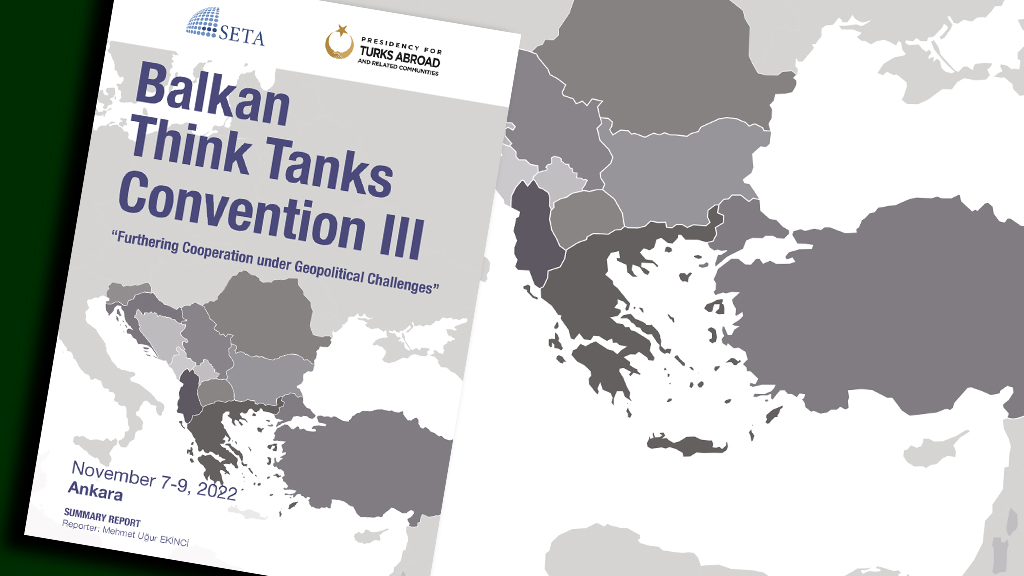This is the third issue of the annual
European Islamophobia Report (
EIR) consisting of an overall evaluation of Islamophobia in Europe in the year 2017, as well as 33 country reports which include almost all EU member states and additional countries such as Russia and Norway. This year’s
EIR represents the work of 40 prominent scholars and civil society activists from various European countries.
The denial of the very existence of Islamophobia/anti-Muslim racism/anti-Muslim hate crime in Europe by many demonstrates the need for an appropriate effort and political will to tackle this normalized racism and its manifestations that are deeply entrenched in European societies, institutions, and states.
This denial is not only the case for extremist groups on the political fringe of the society, but rather far-right discourses have moved to the center of political power. Consequently, it is not only right-wing extremist groups that rely on the means of Islamophobic propaganda and discourse - social democrats, liberals, leftists or conservatives are not immune to this form of racism.
As a survey published by the FRA reveals 76% of Muslim respondents feel strongly attached to the country they live in, while 31% of those seeking work have been discriminated against in the last five years. At the same time, only 12% of Muslims say they have reported cases of discrimination. Hence, we can say with certainty that the extent of discrimination Muslims face in Europe is much greater than the numbers revealed in any report on Islamophobia and anti-Muslim hate crime in Europe.
In other words, one can claim that all the available data and statistics about Islamophobia in Europe show only the tip of the iceberg. Therefore, revealing the comprehensiveness of structural anti-Muslim racism lies at the heart of the
European Islamophobia Report project, which on a yearly basis analyzes the trends and developments in almost all states in Europe from Russia to Portugal, and Malta to Norway.
The
European Islamophobia Report 2017 constitutes a precious source of knowledge for everybody – whether scholars or ordinary readers – interested in the development of racism and Islamophobia in Europe. Well-organized, complete and accessible, the
EIR 2017 also represents a useful and valuable tool for any activist or policymaker who aims to tackle Islamophobia in a decisive manner.
The authors of every respective national report have suggested specific recommendations regarding the country they have covered. This will support all those forces within European societies, who work towards a more equal society and fight every form of racism. The editors of the
EIR support the following recommendations, which were made by leading organizations in the struggle against anti-Muslim racism:
- In the face of the increased and generalized suspicion and marginalization of Muslims in the post-terrorist attacks and migration contexts and the deep impact the former have had on Muslims’ lives, including newly arrived migrants, the recognition of the specific form of racism targeting Muslims (or those perceived as such) is crucial.
- EU institutions need to recognize and address Islamophobia politically as a form of racism that can lead to human rights violations.
- The legal and political recognition of Islamophobia is of utmost importance. Therefore, a European-level conference on Islamophobia should be organized with the support of at least one EU member state or the European Parliament.
- In this context, the European Parliament should adopt a resolution on combatting Islamophobia with concrete policy recommendations and ways forward - as it did to combat anti-Semitism and anti-Gypsysism.
- EU member states should adopt national action plans against racism addressing Islamophobia as a specific form of racism.
- Europe needs courageous leaders and activists who can confront Islamophobic discourses and narratives in the age of rising far-right parties.
- The recording of anti-Muslim/Islamophobic crimes as a separate category of hate crime by the police forces of all European states is essential to uncover the real extent of this problem and to develop counter-strategies to combat it.
- Muslim women’s access to employment should be improved since they are the most discriminated group among Muslims. Gender equality departments and the corresponding committees of EU institutions should give specific attention to situations of discrimination affecting Muslim women by documenting the issue and pushing for specific programs and measures to combat it.
- While protecting free speech, developing clear guidelines to tackle online hate speech and considering primary legislation to deal with social media offences and online hate speech are also vital since the Internet plays an important role in the spread of Islamophobic discourses and also in the radicalization of far-right terrorists.
- Discrimination in the workplace should be tackled to address the low level of economic activity among Muslims through targeted interventions at the stages of recruitment, job retention, and promotion.
- Preserving the Human Rights Act and the protection of minority rights including religious slaughter, circumcision and the wearing of religious attire or symbols are imperative for a multicultural Europe.
- Counter-terrorism policymakers should work with Muslim communities, not against them, in the so-called “de-radicalization” programs. These programs should also incorporate the fight against far-right and far-left terrorist groups and should not only target Muslims.
